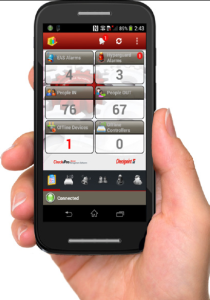 The policies and procedures about shoplifting and detaining shoplifters should be known by every person in your store or business to ensure the safety of your employees. The importance of the policies can help with employee theft in your store. If a zero tolerance procedure is known by everyone, it can serve as a deterrent for future or possible theft. For more about this and other stories, follow the links below.
The policies and procedures about shoplifting and detaining shoplifters should be known by every person in your store or business to ensure the safety of your employees. The importance of the policies can help with employee theft in your store. If a zero tolerance procedure is known by everyone, it can serve as a deterrent for future or possible theft. For more about this and other stories, follow the links below.
When he came home to Germany after the First World War, Adolf “Adi” Dassler went into the athletic shoe business, creating a company that was eventually named for its founder: Adidas. (His brother Rudi moved across the river and founded Puma. Shoes run in the family.)Today the Adidas Group, still headquartered in the small Bavarian town of Herzogenaurach, is a global leader in the sporting goods industry, with 2014 sales of just under $16 billion. Its brands include Adidas, Reebok, TaylorMade, Ashworth, CCM and Five Ten. Earlier this year, the company sold its Rockport unit to a new entity formed by Berkshire Partners and New Balance.
“Adidas is not a natural retailer,” says Ken Bohnert, the company’s profit protection manager. “We came into the retail world on the back of our manufacturing arm — 10 percent of our income stream comes from retail, 90 percent from manufacturing.”
Wisconsin College Admin: Police Shouldn’t Prosecute Shoplifters [VIDEO]
An administrator at the University of Wisconsin-Madison suggested at a recent roundtable conversation that, in order to combat “overpolicing” in the community, police should no longer respond to shoplifting claims at large stores such as Wal-Mart, and shouldn’t agree to prosecute people caught stealing.
“I just don’t think that they should be prosecuting cases … for people who steal from Wal-Mart. I just don’t think that, right?” said UW-Madison director of community relations Everett Mitchell. “I don’t think [with] Target or all them other places, them big box stores that have insurance, they should be using justification, the fact that people steal from there as justification to start engaging in aggressive police practices, right?”
Can You Sue an Employee for Stealing?
Dealing with customer theft is one thing, but what happens when it’s your own employees stealing from your store? Of course there are criminal laws against theft, but that may not get you the full value of what was stolen.
So can you file a lawsuit against an employee for theft? And, if so, what kinds of theft are covered?
Paycheck Penalties
If your state allows, and if you’ve decided not to fire the employee, you could consider deducting the amount of the theft from his or her paycheck. Just be careful: some states (like California) prohibit this entirely, and some states have certain restrictions on when employers can deduct wages and how much they may deduct. You don’t want your attempt to deal with theft to end up in a lawsuit against you.








